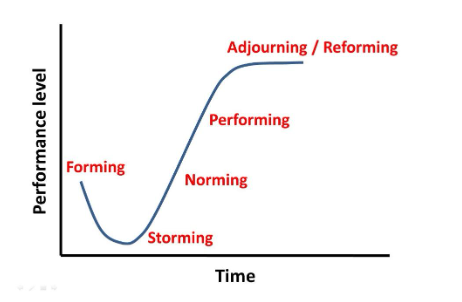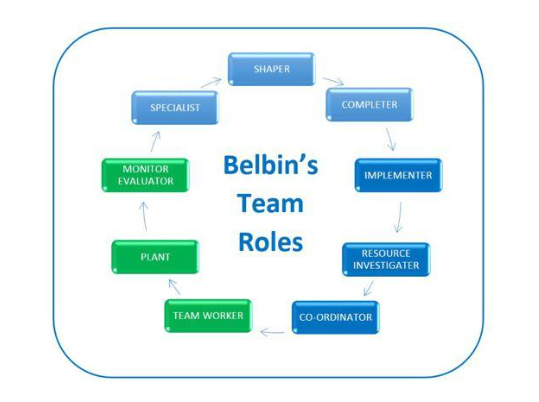Organizational Behavior and Team Development
Introduction
Organisational behavior is mainly how the people in the Organisation can interact with each other where the behaviour of the person has crucial impacts on their culture, communication style and working practice (Kitchin, 2017). In the recent era of globalisation, Organisational behavior is one of the significant aspects of the business where the leaders and managers are concerned about developing effective Organisational behavior so that they can create a good team for their business where the employees can cooperate and work efficiently as a team. the aim of the study is to develop effective strategy for creating an effective team so that the organisations can perform better and achieve success in near future. Sainsbury’s announced that, the business is trying to merge with Asda so that the combined market share can be improved in near future approximately by 31.4% and both the firms Sainsbury’s and Asda can compete across the globe and gain highly competitive advantage over Tesco and Walmart. It is important to develop effective planning for building an efficient team where both the firms can work cooperatively to achieve their goal of gaining high market share in the UK retail industry.

Team development theories
Tuckman’s Teamwork Theory is effective to understand the tactics of creating an effective tam where the members can perform better by cooperating with each other. there are five stages of team development which are forming, storming, norming, performing and adjourning. Forming is the first stage of team development activity where the team members try to take initiative to talk with other team members by understanding the perspectives and expectations. The members try to explore and understand the behaviour of others so that they can acknowledge each other’s perspectives (Christina et al., 2014). In the second stage storming, the members try to cooperate, and the leaders control the members by resolving any existing inter personal conflicts. Norming is the third stage where the leaders try to improve emotional intelligence as well as develop relationship among all the members so that the team members can depend on each other. Under performing stage, members trust each other and improve cooperation by building strong relationship among them. In the last stage adjourning, the team may be adjourned where all the team members are well concerned about the team objective and they contribute positively to achieve the organisational success.

Belbin’s team role is another effective model, where the roles of an effective team are resource investigator, team workers, coordinator, plant, monitor evaluator, specialist, shaper, implementer and complete finisher. The team members should focus on resource investigator so that he or she can explore new opportunities and develop effective tactics for performing better by utilising the organisational resources and capabilities (Pereira, Malik and Froese, 2017). The members need to focus on team’s objective and distribute the work properly among the team members so that they can perform well and, in this regard, proper coordination among the team members are necessary through which the members can work efficiently and meet the team objective (Pandey, 2016). Planting the strategic planning and monitoring and evaluation are also the role of the team members where they need to be creative and critical thinker for developing new ideas and tactics to perform better in near future. Shaper and implementor are also the role of the team members as per Belbin’s team role where the members focus on organisational gaols and develop effective strategy to achieve the pre-specified gaol.

In the present case, the organisations Sainsbury’s and Asda need to focus on team building activities where the leaders can cooperate with all the existing members and develop proper organisational culture so that both the employees in Sainsbury’s and Asda can work under a common workplace with more cooperation and communication.
Techniques of developing team’s sustained cooperation
It is necessary for the leaders and managers of both the firms Sainsbury’s and Asda to develop effective strategic planning for improving cooperation so that the team members can work cooperatively in near future and achieve the objective of gaining high market share through merger. In order to improve cooperation among the team members, the leaders need to develop effective Organisational culture where all the members are treated fairly and there is equality in the workplace where the members are valued equally. Positive working environment, freedom to work and open communication are the major tactics through which it is possible to develop sustained cooperation among the team members (Paull and Whitsed, 2018). Open and honest communication is necessary for building cooperation where the team members can interact with each other and develop an effective team positively. Moreover, the managers and leaders need to empower the members in the decision-making behavior of the firms and seek feedback from each of the member so that their interest to participate in the organisation is increasing day by day (Mahembe and Engelbrecht, 2014). equal and fair treatment of the team members as well as transparency and accountability are also contributing factors that are helpful to develop an effective team with high cooperation and interpersonal dependence. the leaders and managers in Sainsbury’s and Asda need to focus on building trust and respect for each other where the members can depend on others and work cooperatively with others. For improving cooperation, the members of the team need to be comfortable and communicate with others with honesty and respect.
Continue your journey with our comprehensive guide to Coaching vs. Mentoring in Organizations.
Philosophies of Organisational behavior
Organisational behavior depends on the working culture, leadership style, people and internal system of the companies where the leaders and managers play an important role in developing effective Organisational behavior to run the business sustainably. Sainsbury’s and Asda focus on developing relationship with all the team members where the members can cooperate with each other by ensuring trust and loyalty. positive working culture and fair treatment are helpful in this regard for Sainsbury’s to take the decision of merging with Asda and work collaboratively so that the pre-specified objective can be archived successfully. In addition to these, the management team of the companies focuses on leadership style and in this regard transformative leadership style is suitable through which it is possible to develop appropriate Organisational behavior where the team members can cooperate and work collaboratively (Owoyemi and Ekwoaba, 2014).
The leaders try to focus on the expectations and preferences of the employee and continuous motivation to the employees help the members to develop an effective team where the employees of Asda and Sainsbury’s can work cooperatively. The leaders are also concerned about job satisfaction of the employees and in this regard, the incentive structure and performance related pay of Sainsbury’s are helpful for motivating the staff as well as the leader also encourage creativity and innovation of the employees so that it is possible for them to perform better. Ethical guidelines in the workplace such as Health and Safety at Work Act 1974, Data Protection Act 1998 are helpful to protect the team members and fulfill their value by providing them safety and security (Larijani and Saravi-Moghadam, 2018). Moreover, positive working culture, open communication and honesty among the team members are also contributing factors in developing effective Organisational behavior where it is easy for Sainsbury’s to develop an effective team with the employees of Asda where the members can work cooperatively.
Evaluating the relationship between team development and Organisational behavior
Team development activities and the Organisational philosophies are inter related where the leaders and the managers play significant role in developing effective Organisational behavior where the employees can share their values with each other. During merger between Sainsbury’s and Asda, the main issues that may arise are internal conflicts and lack of communication where the employees hesitates to interact with others which in turn raises internal conflicts. For Sainsbury’s, it is necessary to take the initiative to merge with Asda through developing an effective team by enhancing internal communication where the leaders try to encourage open conversation among the team members and motivate them to work as a team. Through developing Organisational behavior and managing the philosophies of the company, Sainsbury’s needs to focus on creating an effective team where the team members can communicate with each other positively. The leaders of Sainsbury’s should be cooperative and empower the team members so that all the employees can participate well and perform efficiently to achieve team objective.

Conclusion
Team building activities are hereby important for the organisation Sainsbury’s to merge with the organisation Asda so that the objective of gaining highly competitive advantage in the UK retail sector can be achieved successfully. In this regard, the leaders and managers of Sainsbury’s need to focus on communication through encouraging open conversation, group discussion and general meeting where the team members can represent their perspectives and share their views and ideas with each other. Secondly, Sainsbury’s need to maintain transparency and empower the members so that their participation will increase, and they can work collaboratively in the workplace an effective team. These two tactics are helpful for Sainsbury’s to make the business deal with Asda and develop an efficient team through enhancing communication and improving cooperation.
Reference List
AlNasseri, H.A. and Aulin, R., 2016. Understanding Management Roles and Organisational Behaviour in Planning and Scheduling Based on Construction Projects in Oman. Journal of Construction in Developing Countries, 21(1).
Christina, S., Dainty, A., Daniels, K. and Waterson, P., 2014. How organisational behaviour and attitudes can impact building energy use in the UK retail environment: a theoretical framework. Architectural Engineering and Design Management, 10(1-2), pp.164-179.
Kitchin, D., 2017. An introduction to organisational behaviour for managers and engineers: A group and multicultural approach. London: Routledge.
Larijani, F. and Saravi-Moghadam, N., 2018. The effects of positive organisational behaviour on entrepreneurial personality and innovation. International Journal of Productivity and Quality Management, 23(2), pp.247-272.
Mahembe, B. and Engelbrecht, A.S., 2014. The relationship between servant leadership, organisational citizenship behaviour and team effectiveness. SA Journal of Industrial Psychology, 40(1), pp.01-10.
Owoyemi, O. and Ekwoaba, J.O., 2014. Organisational Culture: A Tool for Management to Control, Motivate and Enhance Employees’ Performance.
Pandey, S., 2016. Theoretical Controvercies in Organisational Behaviour. The Indian Journal of Social Work, 55(2), pp.213-219.
Paull, M. and Whitsed, C., 2018. Why authenticity in corporate and employee volunteering matters for employee engagement: an organisational behaviour perspective. In Disciplining the Undisciplined? (pp. 193-210). Springer, Cham.
Pereira, V., Malik, A. and Froese, F.J., 2017. Mapping the impact of Asian business systems on HRM and organisational behaviour: multi-level comparative perspectives. Journal of Asia Business Studies, 11(3), pp.253-261.
Zaghini, F., Biagioli, V., Fida, R. and Sili, A., 2017. The ethical leadership of the nursing ward managers as a key determinant of nurses' organisational behaviours in the healthcare settings. Professioni infermieristiche, 69(1), pp.31-40.
- 24/7 Customer Support
- 100% Customer Satisfaction
- No Privacy Violation
- Quick Services
- Subject Experts



